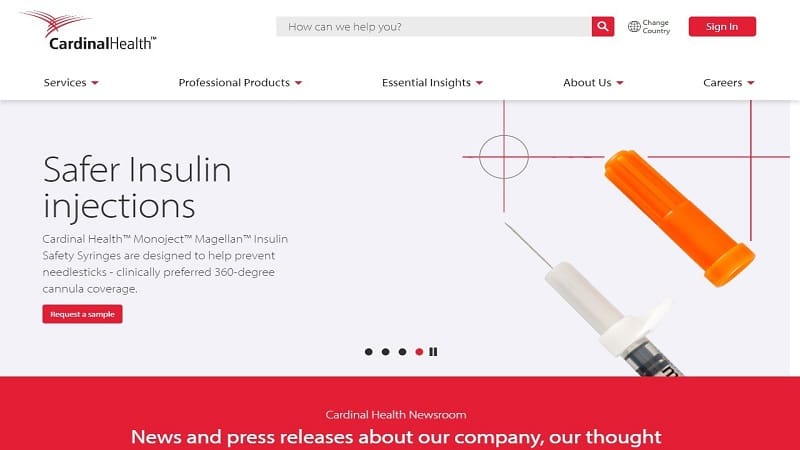
DUBLIN, Ohio, Dec. 9, 2021 /PRNewswire/ — More than 80% of oncologists frequently see mental health distress in their patients with cancer, and more than 90% say it has a significant impact on their health outcomes. These findings were released today in the latest edition of Oncology Insights, a report published by Cardinal Health Specialty Solutions based on surveys with more than 240 U.S. oncologists.
Anxiety disorders and depression were cited by more than 80% of oncologists as the types of mental health distress seen most frequently in their patients, but personality and addiction disorders were also mentioned. Despite the high prevalence of mental health concerns, only a third of the surveyed oncologists said they frequently refer patients for mental health treatment and nearly half say there are not adequate resources available to support the mental health needs of cancer patients.
“Recent research indicates that mental health generally has declined since the start of the COVID-19 pandemic. This is particularly concerning for patients with cancer who are already at an increased risk for mental health distress,” said Heidi Hunter, President of Cardinal Health Specialty Solutions. “Our latest oncology survey shines a light on this issue and provides insights on additional education and resources that could help oncologists to provide much-needed support to patients.”
The survey also explored oncologists’ views on the effective use of palliative care for patients with advanced cancer.
- While there was strong agreement among oncologists (68%) that early introduction of palliative care leads to better outcomes for patients with advanced cancer, only 17% said they refer patients to palliative care at the time metastatic disease is diagnosed.
- The top barriers to delivering effective palliative care cited by survey participants were resistance from patients and caregivers (39%) and lack of staff dedicated to palliative care (28%).
- A strong majority (74%) said better tools are needed to educate patients with advanced cancer about how palliative care can enhance their quality of life. In addition, 45% said better data and predictive analytics are needed to help clinicians determine when to refer patients for palliative care.
About the Survey
The findings in Oncology Insights are based on web-based surveys conducted in September, October and November 2021. More than 240 oncologists from a mix of community- and hospital-based practices participated in the research. The report also includes viewpoints from Bruce Feinberg, DO and Ajeet Gajra, MD, who serve as Chief Medical Officers for Cardinal Health Specialty Solutions.
About Cardinal Health
Cardinal Health (NYSE: CAH) is a distributor of pharmaceuticals, a global manufacturer and distributor of medical and laboratory products, and a provider of performance and data solutions for health care facilities. With 50 years in business, operations in more than 35 countries and approximately 44,000 employees globally, Cardinal Health is essential to care. Information about Cardinal Health is available at cardinalhealth.com.

